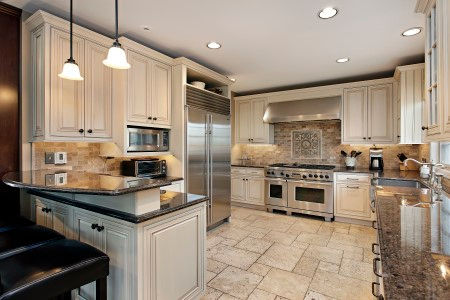Menu

Electricity has become an absolutely essential part of modern life. It is used to power the largest industries down to the smallest household convenience.
In your home, electricity is used to power appliances, furnaces, light fixtures, and many other items. Have you ever wondered how exactly your home's electrical system works?
Our professional Alpharetta electricians at Anything Electric have put together some basic information about residential electrical systems. Learning a little about how your home is powered will help you understand and respect your home's electrical system.
Your home's electrical system is comprised of many different parts, including incoming power lines or conduit, an electric meter, service panels and subpanels, household wiring, electrical outlets, switches, and the appliances that use this power.
These items can be separated into two distinct categories: rough-in components and finish components. Rough-in components are the electrical elements in your home that are installed during the beginning phases of construction, such as wires, cables, and electrical boxes.
On the other hand, finish components are the elements that are added to your home's structure towards the end of construction, such as outlets, switches, and light fixtures.
Electricity is sent to your house from the utility company through overhead power lines and/or underground conduits. This power is delivered most commonly through three main lines, called three-wire service. This is the type of energy delivery system that most households have.
There are two “hot†wires, which each deliver 120-volts of electricity and one neutral wire. Most household lights and appliances use 120-volts, only requiring the use of one hot wire.
However, larger appliances and electrical devices, such as air conditioners, electric ovens, furnaces, etc. require both hot wires, using 240-volts of electricity. All electrical circuits require the presence of the neutral line.
An electric meter is located at the point where the electricity arrives at the house. This device tracks the amount of energy delivered and consumed by the household.
From the meter, the power is channeled to the main service panel, commonly referred to as a “breaker box†or “electrical panelâ€. The main panel is the central distribution point for the entire building's power supply. To understand how this works, one must understand how an electrical circuit works.
In order for electricity to flow, it must be provided with a stable, continuous closed path from beginning to end, with contact never being broken. Like a circle, the power will travel from the power source to the device and then return back to the power source.
This is why the main service panel is commonly called the "circuit breaker box". It provides a way of purposely breaking the circuit, in order to perform service or repair or to guard against safety hazards.
From the main panel, electricity is diverted to individual circuits which provide power to separate areas and aspects of the home. Sometimes, power is sent to sub-panels in other areas of the home and then on to the electrical circuits which run throughout the house.
These circuits provide power to the many power outlets, or receptacles, and light fixtures in your home, allowing you to operate all your household electronic appliances and lights.
Every Alpharetta homeowner should make sure that their homes have adequate surge protection, so you should ask your electrician about surge protectors if your house lacks sufficient surge protection equipment. Having a surge protector allows you to plug several appliances and devices into one power outlet […]
When electrical problems present themselves in your Naperville home, you'll want to get those issues resolved quickly and dependably, lest you run the risk of fires or other dangers. And to be sure you enjoy a dependable and timely repair, get an electrical troubleshooting at the […]